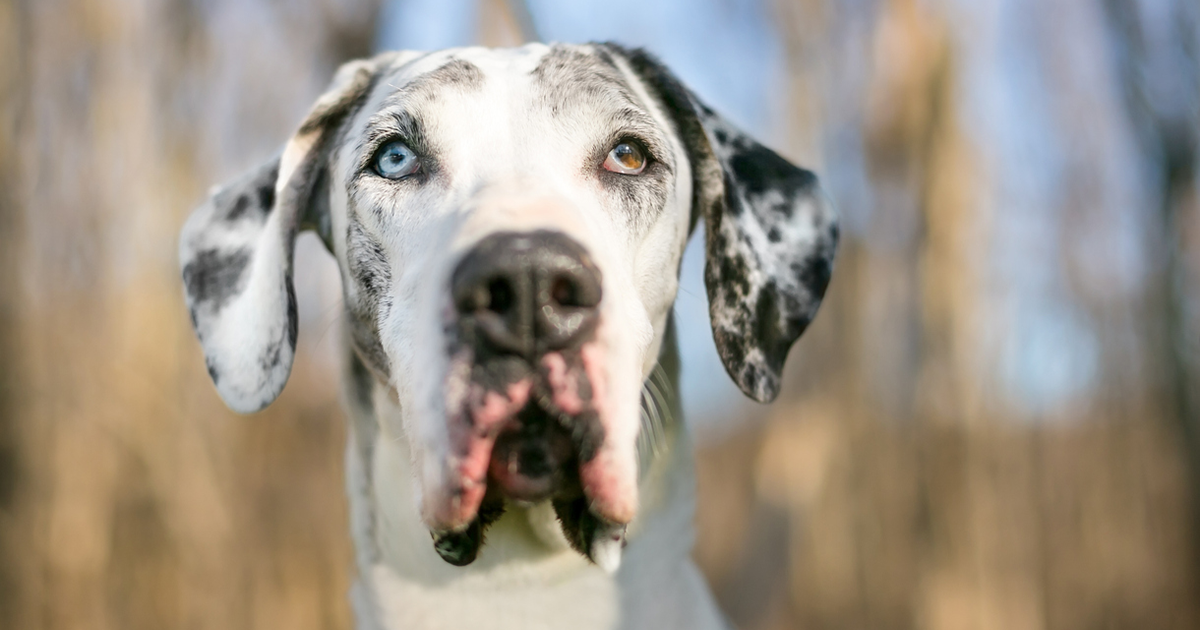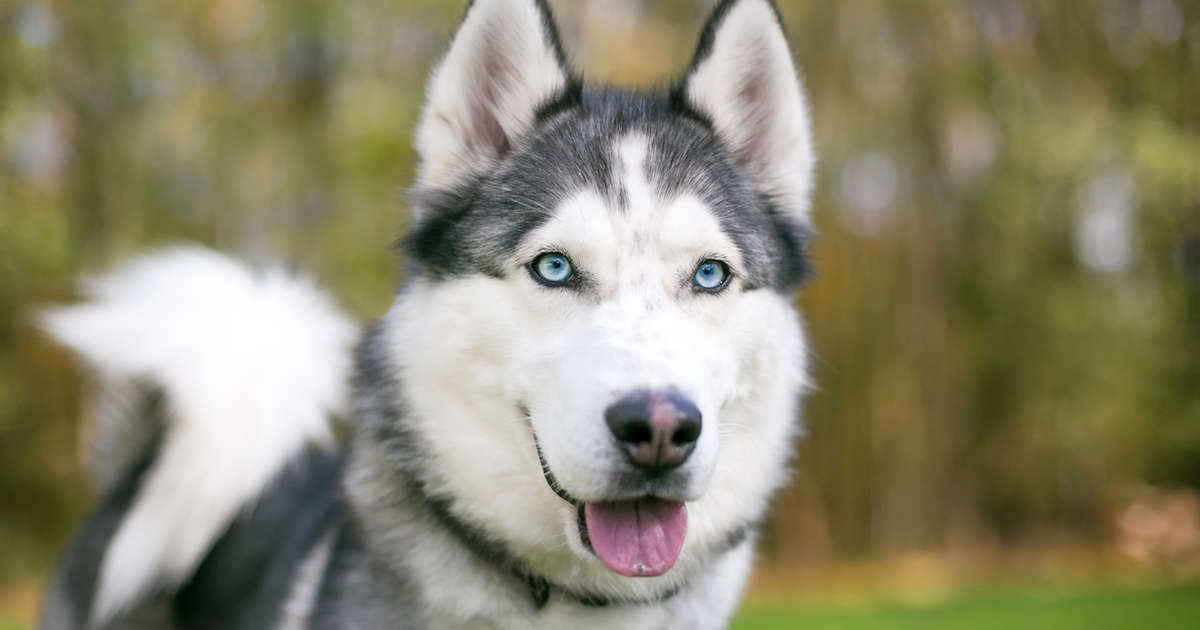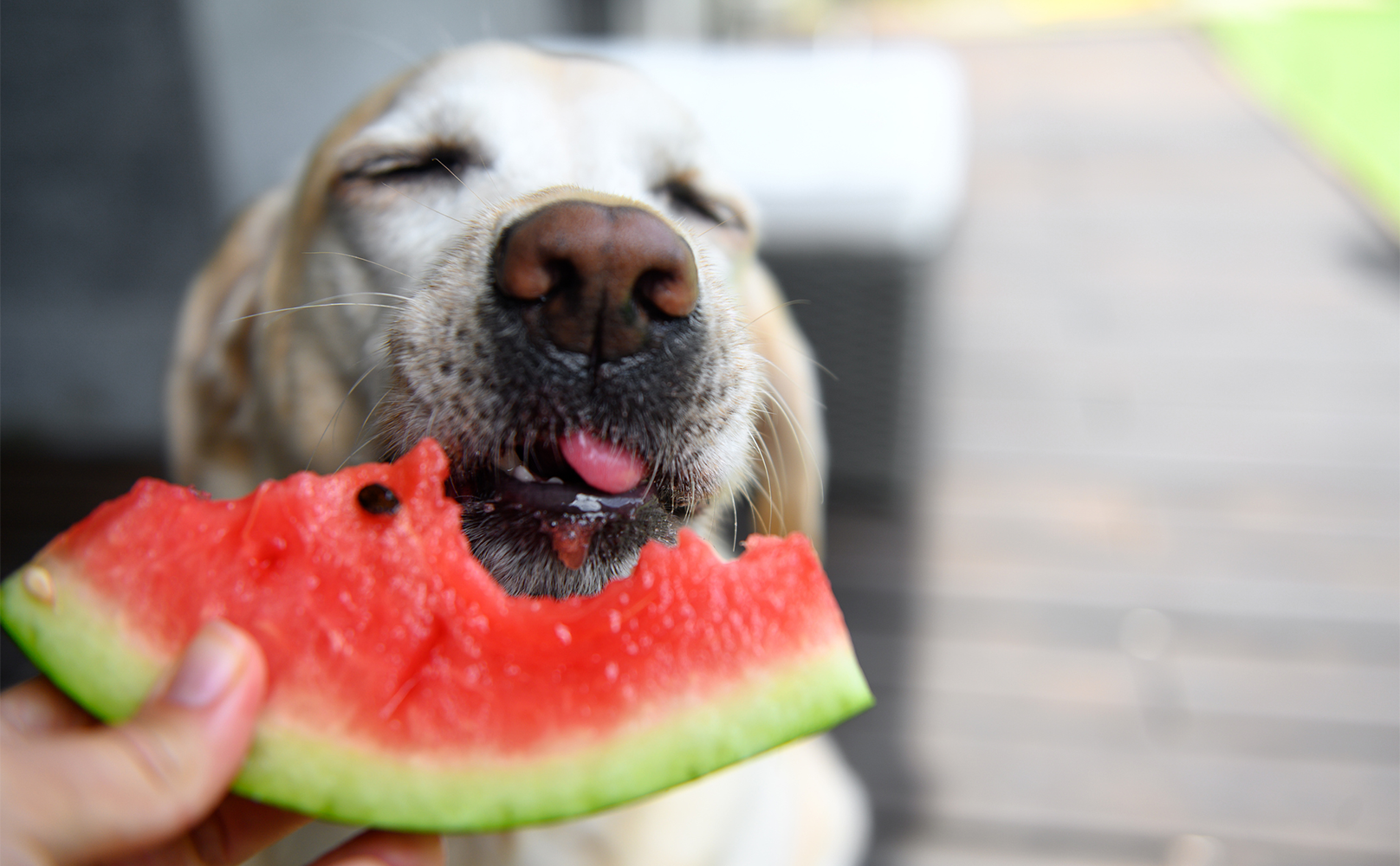Welcome to the BarkPost guide to dog breeds where we belly flop straight into the depths of dog breed origin, evolution, and purpose. Follow along each week as we publish new guides that highlight the strangest, most interesting, and most surprising stuff about these creatures who have been our best buds the last 30,000 years.
Intro / Overview
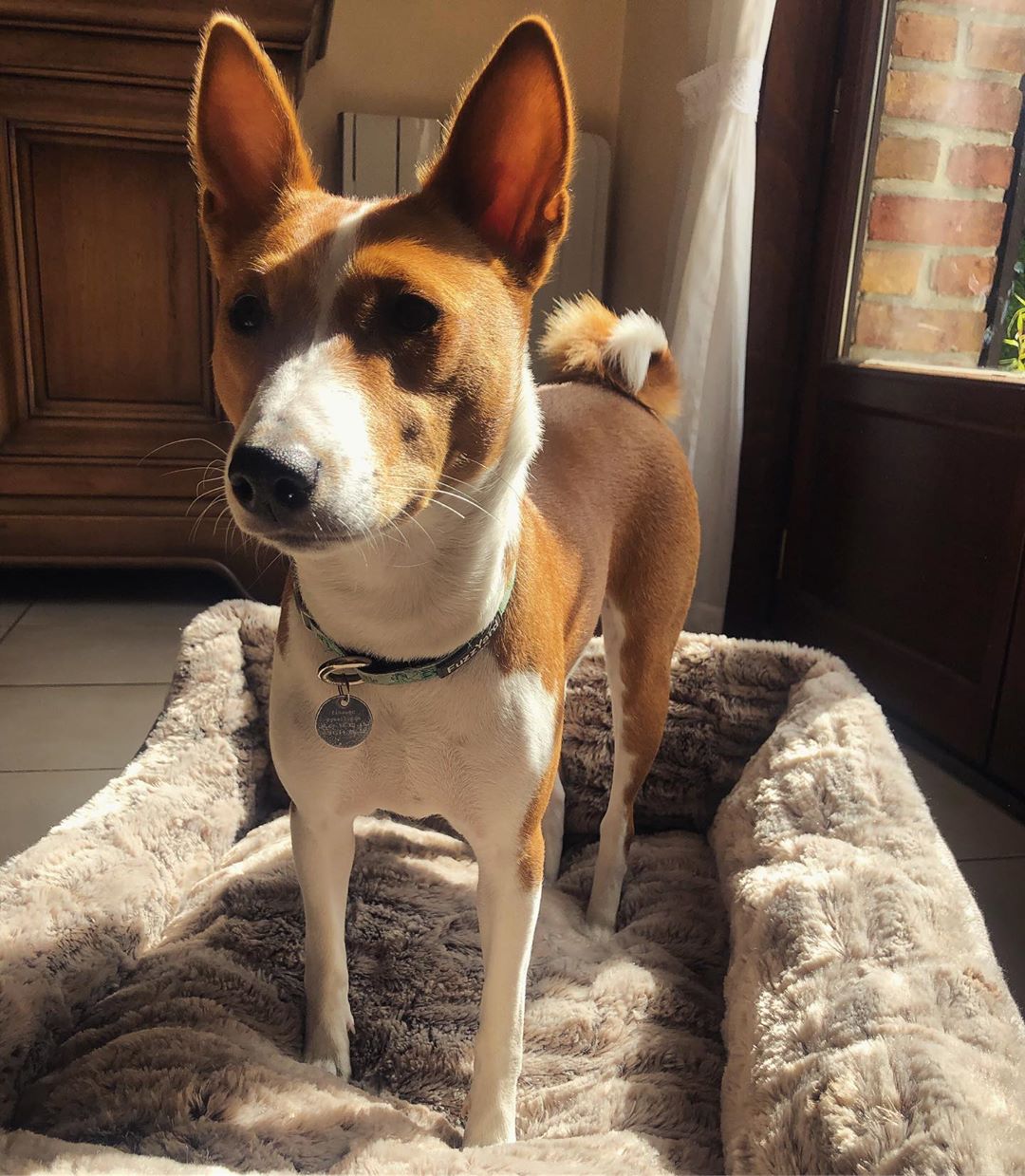

(All dogs are individuals, which means any single dog from any breed can be any number of ways, both good and not so good. Keep that in mind as we discuss breed generalities!)
If you’re an experienced dog owner looking for a rewarding challenge, these primal pups may be the breed for you! Their alert, erect ears, tail tightly curled to one side, and wrinkled forehead hint at the intelligence, stubbornness, and mischievous spirit within. Basenjis are used to being their own boss, so it’ll your job to kindly and continuously teach them otherwise. A so-called “cult breed,” the Basenji is not high in popularity, but those who do own one are part of a lucky and strongly devoted group.
Also Known As…
African bush dog. African barkless dog. Ango angari. Congo dog. Zande dog.
Origins
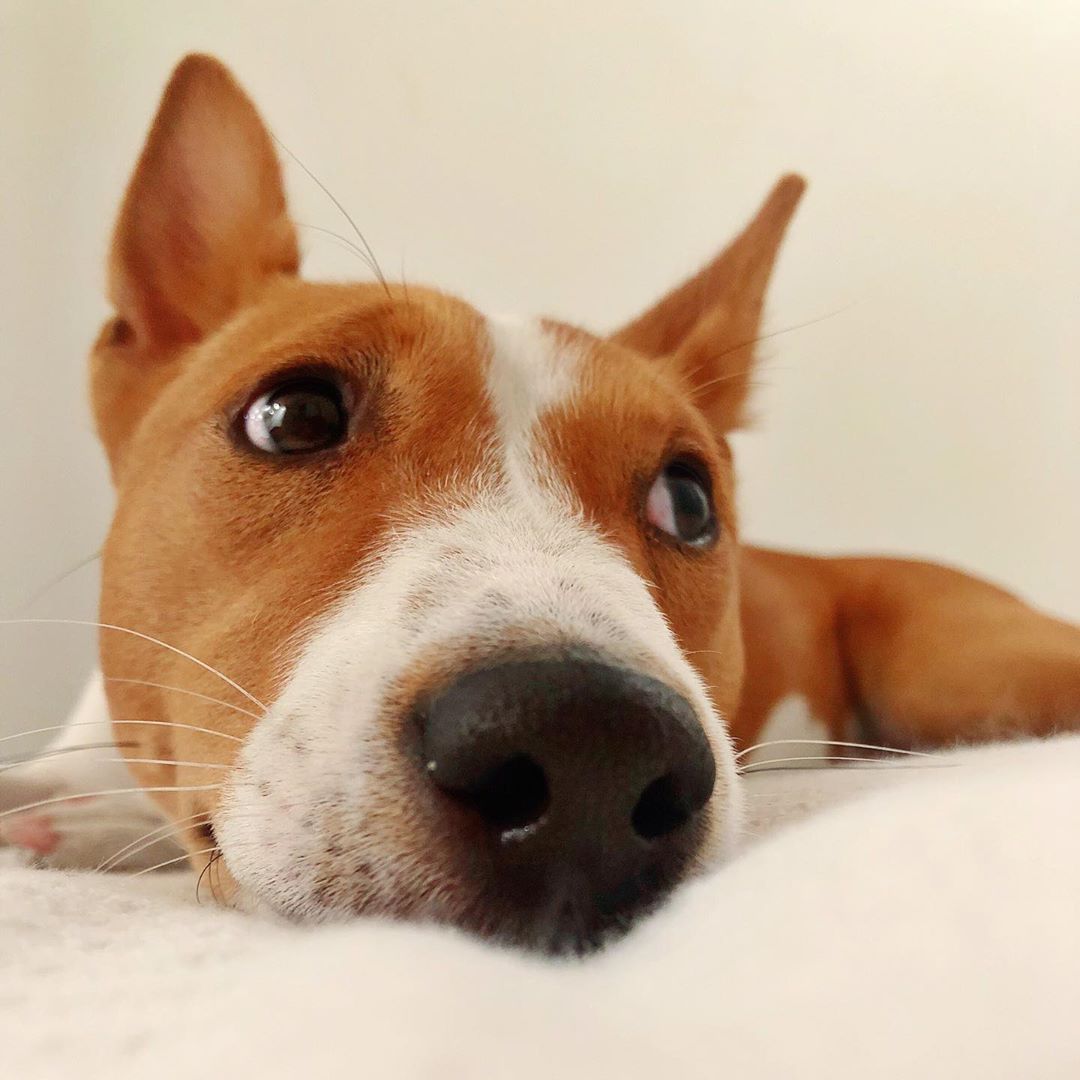

The Basenji can be traced back to ancient Egypt, and can be recognized in ancient Babylonian and Mesopotamian art. Long after those civilizations crumbled, this basal breed could be found along the Nile and Congo rivers in Africa. Isolated for thousands of years, Basenjis were prized by African tribesmen as versatile hunters who could flush game into nets.
Making their way to the West in the late 1800s, Basenji are one of the oldest American Kennel Club breeds, though they remain rare today.
Size


The average height for Basenjis is 15 – 16 inches for females and 16 – 17 inches for males.
Weight Range
The average weight for Basenjis is 20 – 24 pounds for females and 22 – 26 pounds for males.
Personality
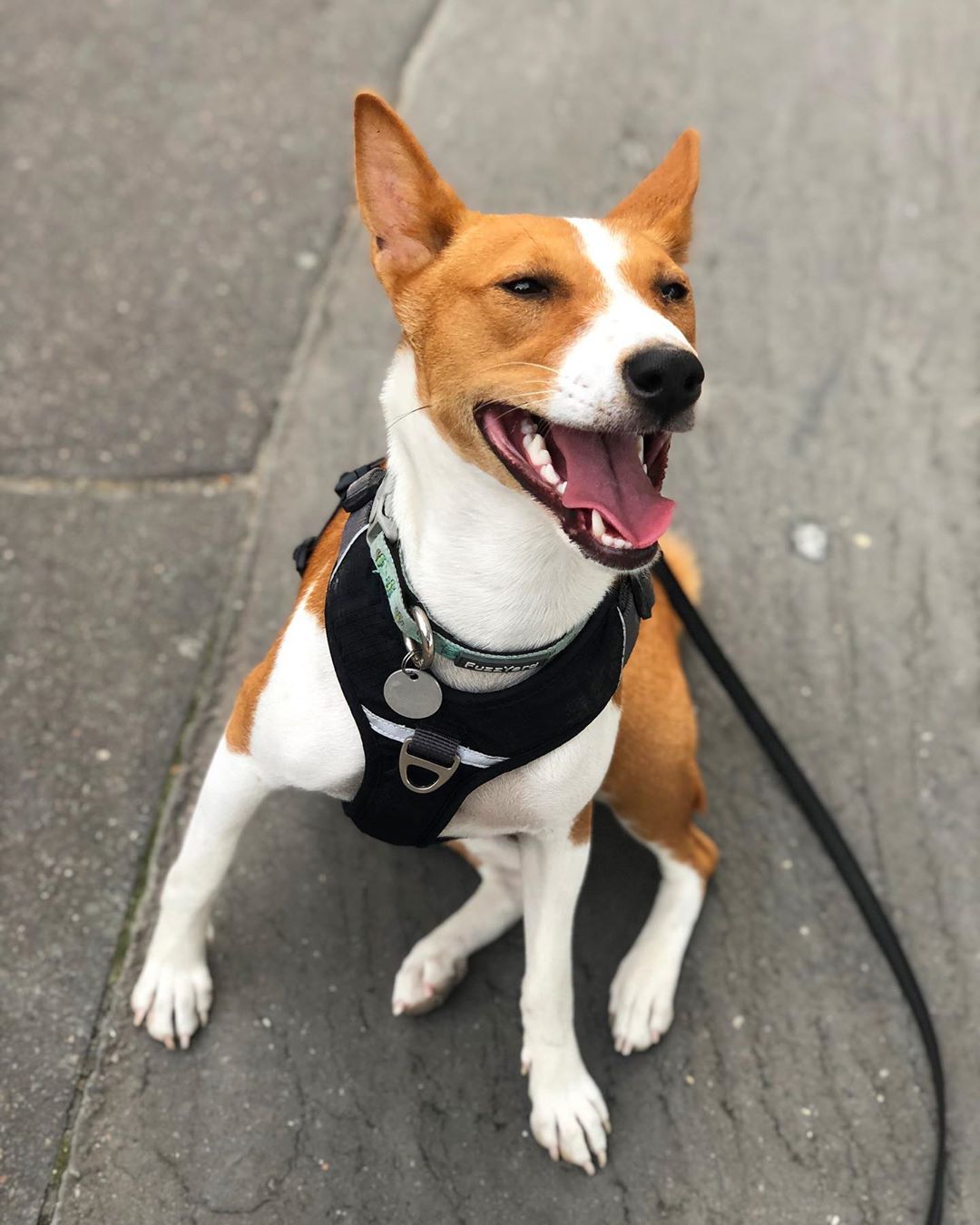

Basenjis are a perfect storm of energy, intelligence and mischief. This breed did not survive for thousands of years by listening to humans, and much unlike many other dog breeds, Basenjis are not here to please their humans. Who knows? Maybe their ancestors spent too much time around cats in ancient Egypt. These highly intelligent and stubborn pups know what you’re asking them to do. They just may not care to do it. But they are very good at finding ways to teach you to do what they want you to do!
Intelligence / Trainability


Socialization and training should start as early as possible, as Basenjis are much better at giving orders than taking them. You need to be careful or you might find yourself being trained by them! First time dog owners will do best to look elsewhere.
Positive training in small intervals, (basically, when the dog feels like it) are your best bet. Force will only compound their stubbornness. While obedience training is often too structured and unmotivating for them, Basenjis do great with canine sports such as lure coursing and agility.
Ideal Environment
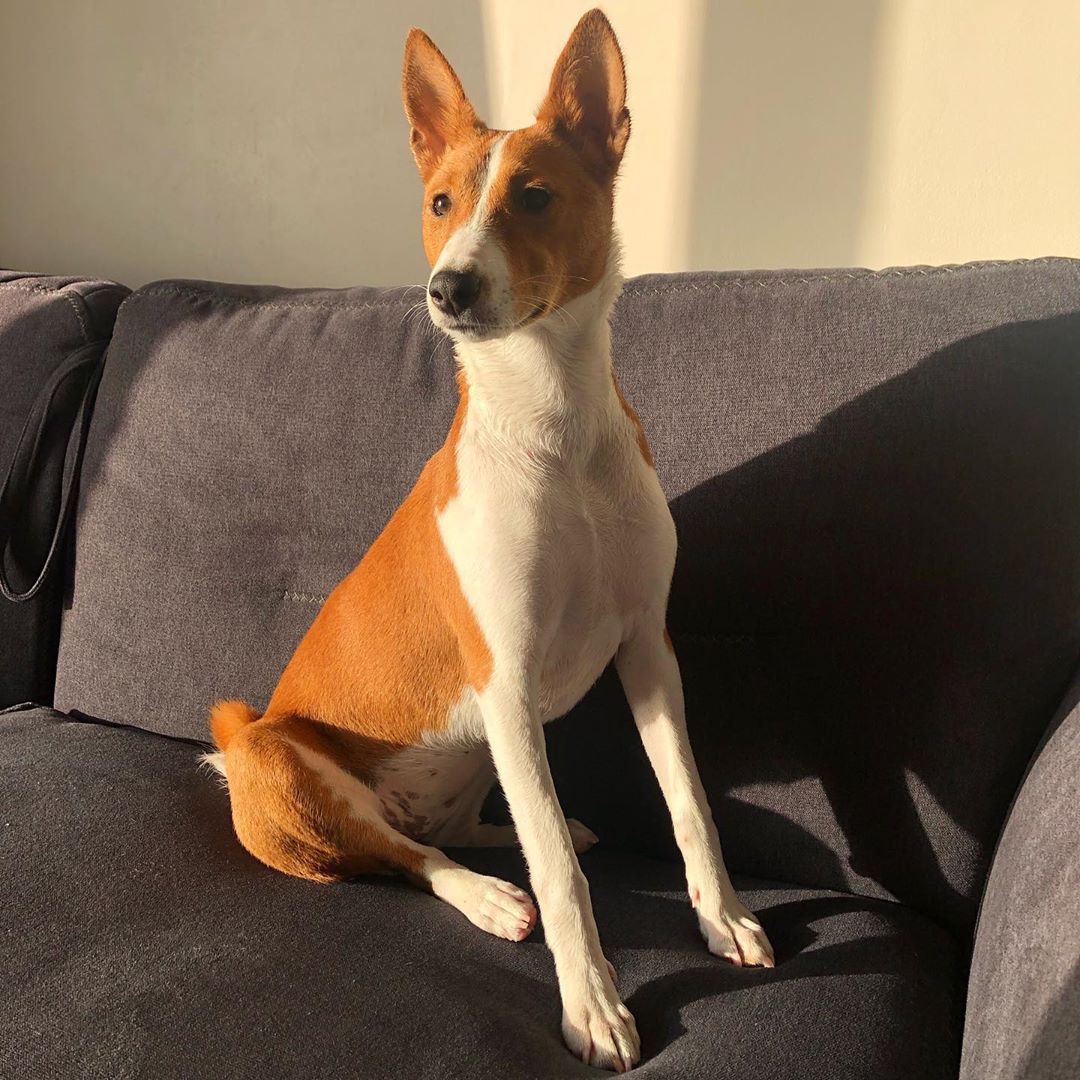

Full of mischievous spirit and energy, Basenjis require a lot of attention. But as long as they’re receiving a couple long walks and/or play sessions each day, they adapt well to apartment life. While a yard is also great, they are escape artists who, if determined, will not be deterred by a fence. Therefore, even when in an enclosed area, it is best to supervise your Basenji, should they get the urge to explore. Basenjis should never be off leash in an unsecured area due to their stong prey drive and, well, lack of concern for your commands.
Good For Families And Kids?
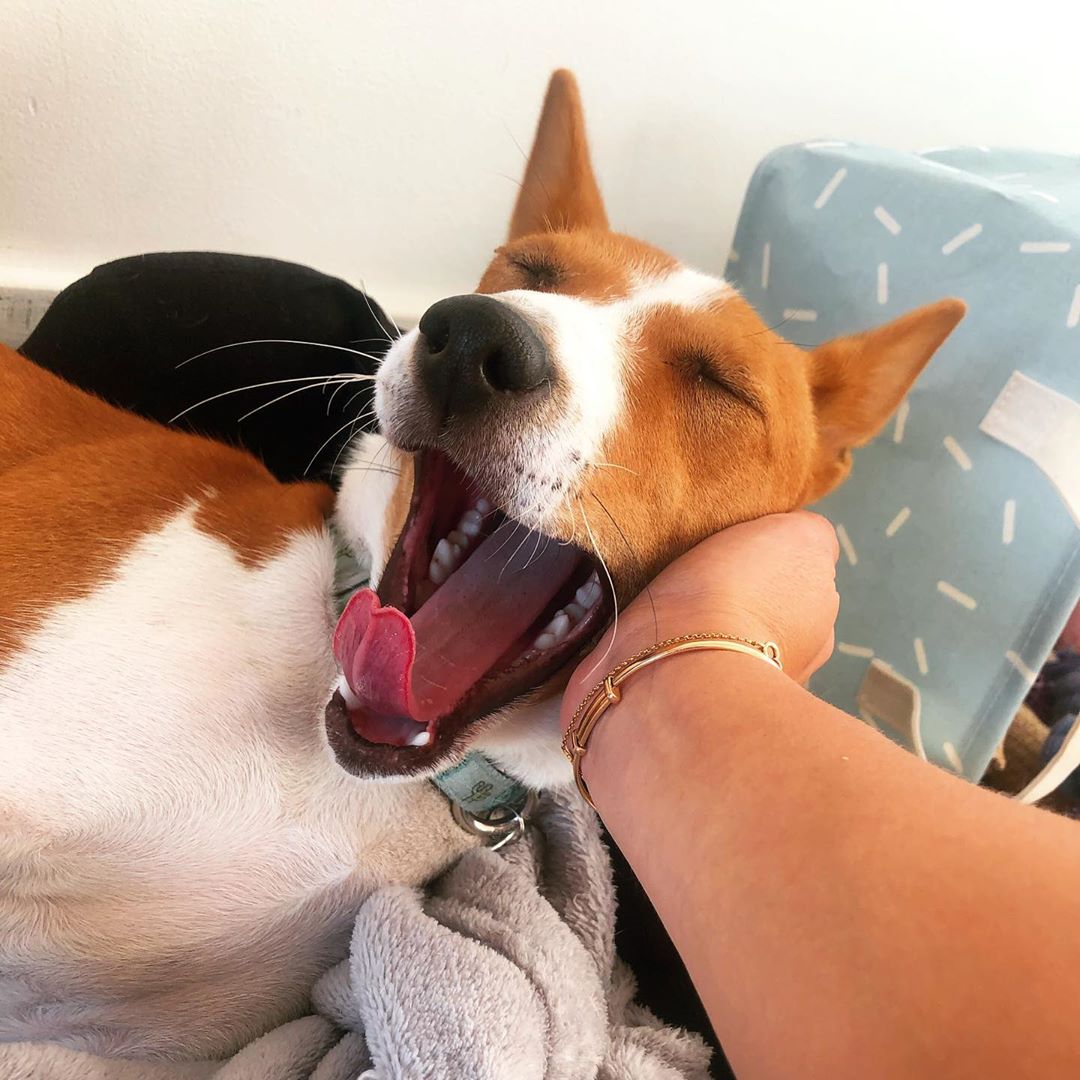

For seasoned dog owners with patience and a good sense of humor, Basenjis make a wonderful companion and family member. They are loving and attentive towards children that they are raised with, but do best with older children who are well-versed in how to properly interact with a dog. These pups do not like to be ignored and will want to be included and paid attention to as much as possible. Initially wary of strangers, Basenjis can be fiercely protective of their family if not socialized early.
Average Lifespan
The average life expectancy for Basenjis is 12 – 16 years.
Health
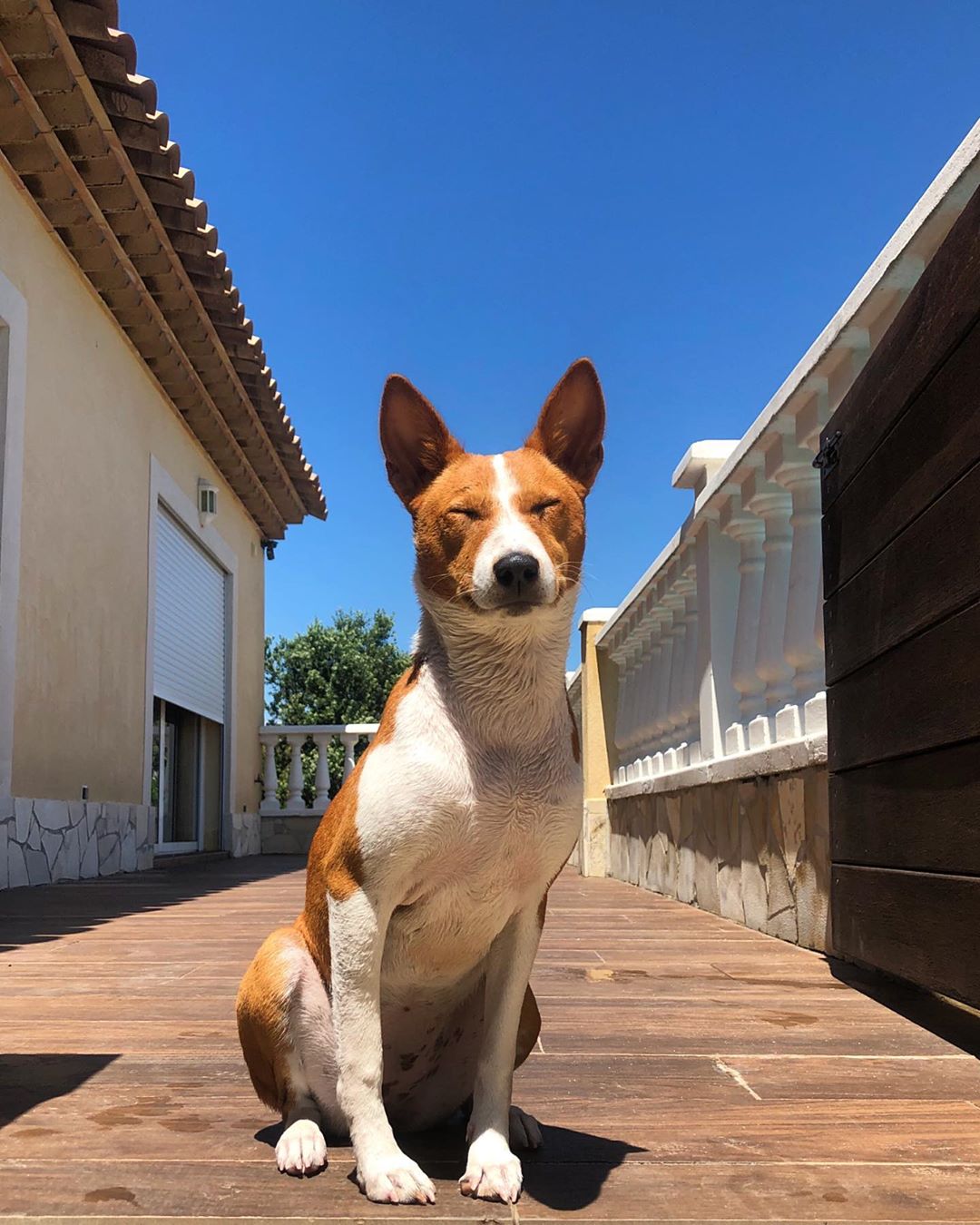

Although generally healthy, like most breeds, Basenjis can have certain health issues that you should be aware of and discuss with your veterinarian, including Fanconi syndrome, a hereditary disorder that affects the kidney’s processing of sugar and protein, which is unusually common in this breed. Immunoproliferative Systemic Intestinal Disease (sort of like IBD in humans), Hypothyroidism, and Progressive Retinal Atrophy are other issues to be aware of.
Energy
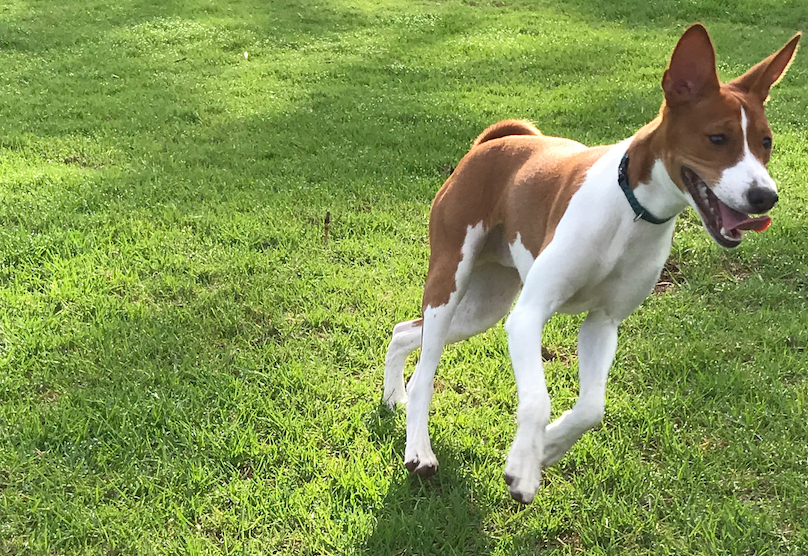

These pups are highly energetic and intelligent, and if not mentally and physically engaged, boredom will set in and most likely lead to destructive behaviors. Supervision and interaction are almost constants for Basenji owners, but the payoff is a lot of love and laughs. An added bonus, Basenji owners often find themselves quickly developing good housekeeping habits, as anything left out and about is fair game to be chewed and/or eaten.
Friendly With… (Dogs? Strangers? Cats/Other Pets?)
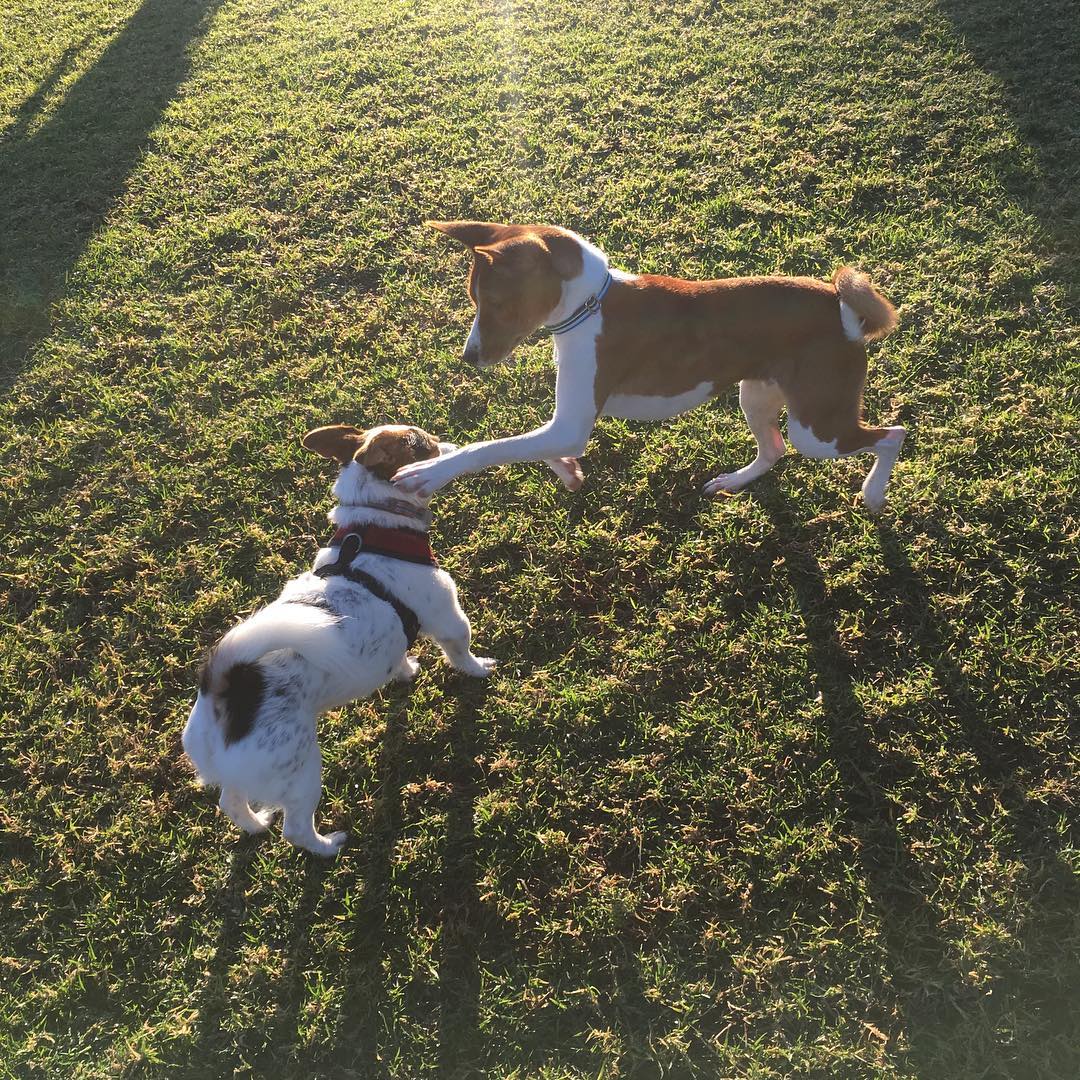

Alert and careful with strangers, Basenjis prefer to make the first move, and may not appreciate being greeted from behind. As they originally hunted in packs, they can be good with other dogs, especially with early socialization. However, when it comes to other pets, Basenjis have a very strong prey drive and are likely to go after cats and other small animals.
Coat & Grooming
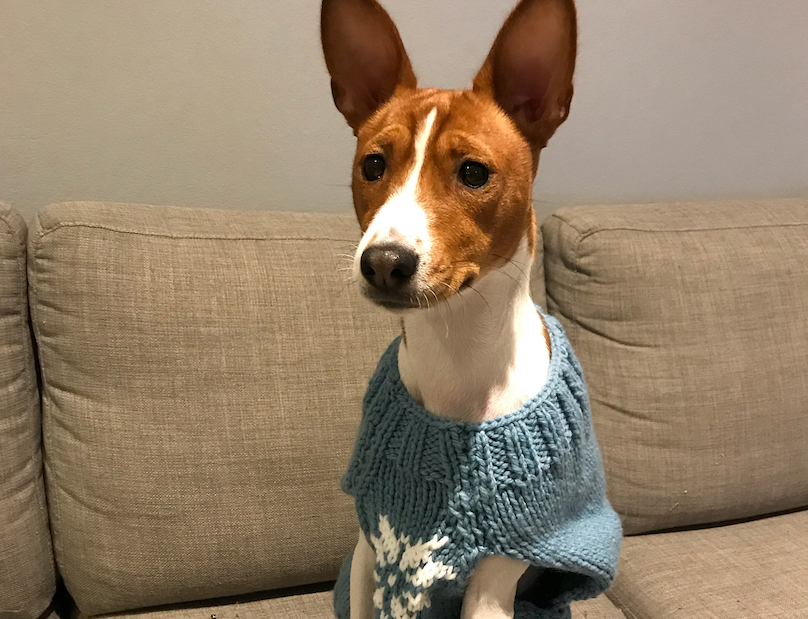

Basenjis, again much like cats, are fastidious groomers, and will spend a lot of time licking their coats clean. Their short coats shed very little and only require a quick brushing once or twice a week. Basenjis also lack a typical dog odor. Coats can be red, black, black and tan, or brindle. They commonly have white legs, feet and chests. Other grooming requirements include nail trimmings 2 to 3 times a month, and a good tooth brushing 2 to 3 times a week.
Quirks
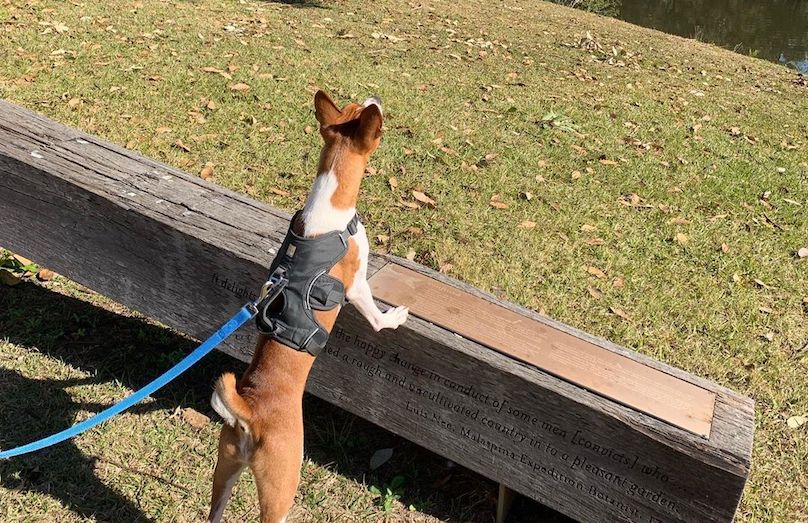

Basenjis are known as the dogs who don’t bark, which is true. However, they still make plenty of communicative doggy noises, such as whimpers, whines, growls, and even a delightful yodel.
Toys Basenjis Would Like Best
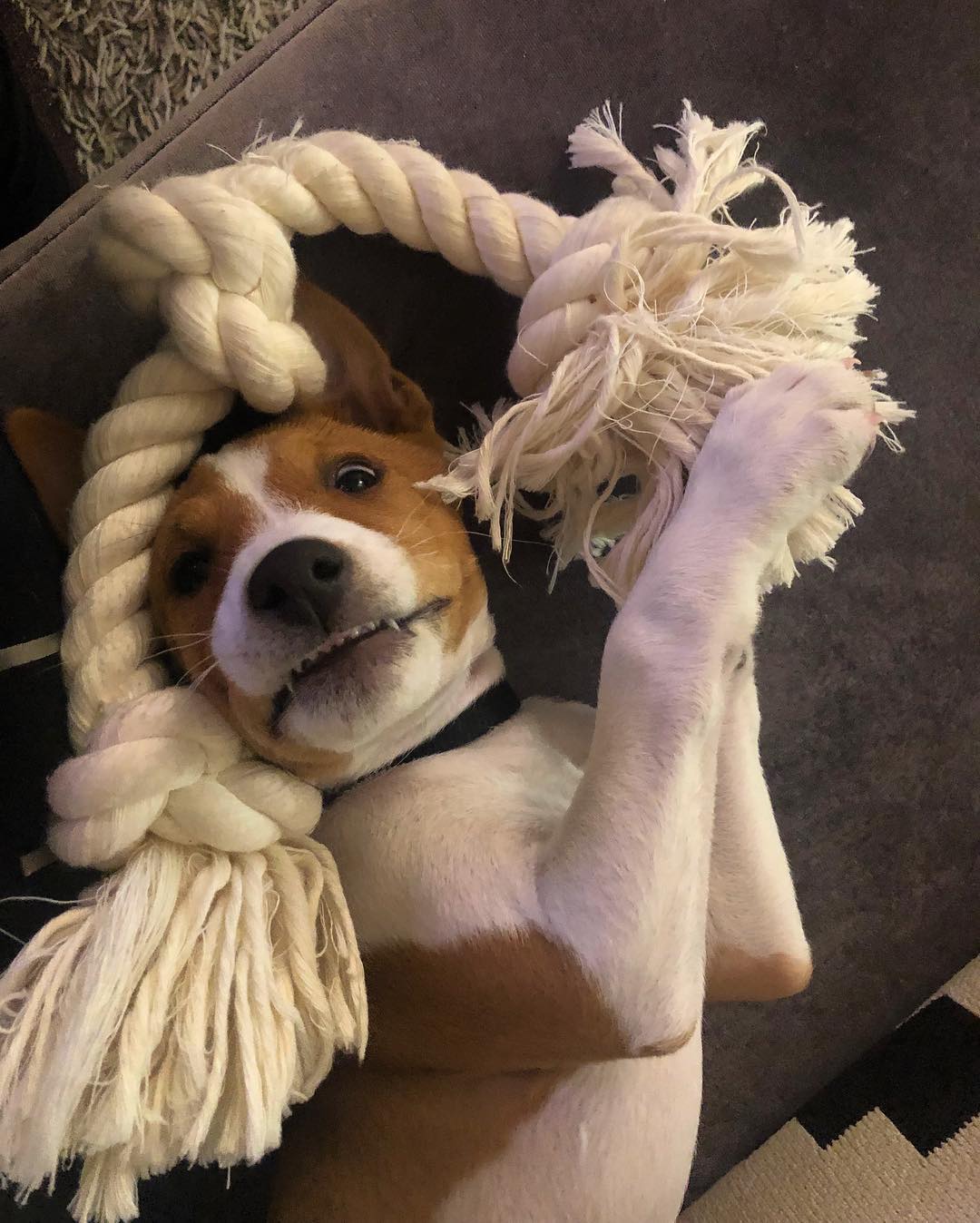

Due to their destructive tendencies, Super Chewer Toys are a preferred option for Basenjis. While they have plenty of energy for outdoor fun, chances are, they’re not going to care to bring back whatever you throw for them. However, Tug Toys are always a great interactive option! You’ll also want to stimulate those intelligent minds with treat-dispensing toys like the “Peanut Butter Pawplexer,” which are great for indoor entertainment (for you and the pup!).
Recommended Diet Or Supplements
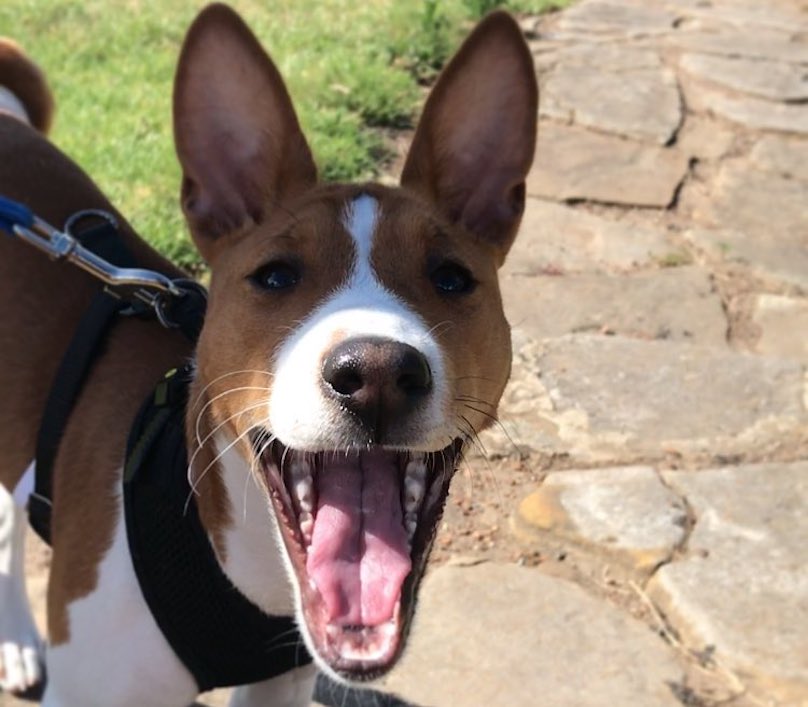

Feeding your Basenji (or any dog) the freshest whole food diet you can afford (trying to eliminate fillers, grains, or inflammatory proteins such as chicken), can go a long way to decrease health issues and increase longevity.
Coconut oil can also help to prevent inflammation, and can help protect the nervous system, while locally-sourced, season-appropriate honey can help with allergies.
Fish Oil Skin & Coat Supplement


These delicious, vet-formulated chews are made with all-natural ingredients including Omega 3, 6, 9, and Vitamin E. They are designed to support immune health, provide relief from itchy allergic skin, and promote a healthy coat. ($19.99)
Full-Spectrum Hemp Oil
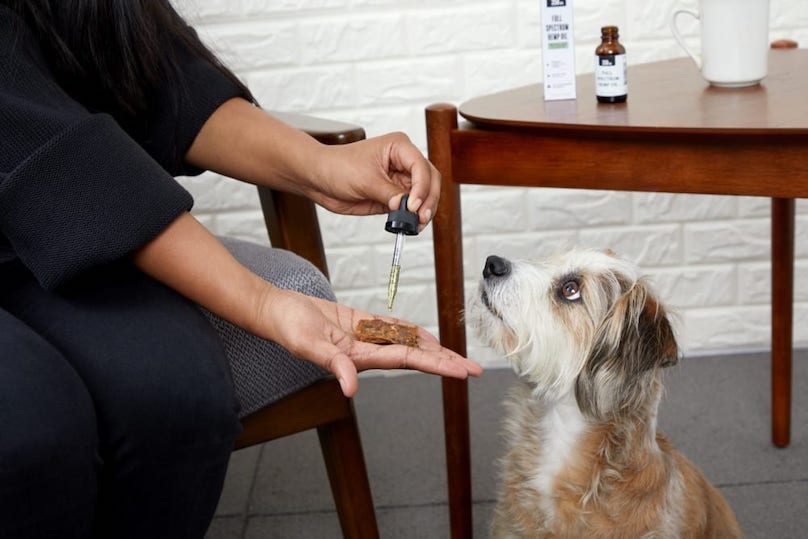

BARK’s Full Spectrum Hemp Oil is made of organically grown whole plants, grown in Colorado, and is non-psychoactive. It comes in 100mg, 250mg, and 500mg varieties, and can help with pet anxiety and pain relief. ($17.99-22.99.)
Recommended Products
For Basenjis with joint issues – or any dog who just loves to lie around! – a nice comfortable bed with orthopedic support is probably a good idea.
Orthopedic Ultra Plush Memory Foam Dog Bed


This ultra plush orthopedic dog bed provides support for even the most active of dogs! The combination ergonomic memory foam and gel foam relieves pressure points, and helps ease body aches caused by hip dysplasia, arthritis and other orthopedic issues. ($27.99-64.99.)
Notable Rescues To Find The Basenji Of Your Dreams
- Basenji Rescue and Transport (BRAT) provides “safe harbors and strong anchors for Basenjis set adrift.” Founded in 1999 with the mission to rescue, rehabilitate, and rehome dogs of the Basenji breed, the group’s volunteer network covers the U.S. and southern Canada. So far, they have rescued 3,749 Basenjis and hundreds of mixes.
- Camp Basenji is a group of volunteers dedicated to improving the health and well-being of Basenjis. They provide food, care, companionship, and homes, for Basenjis in need. The group also provides information, advice, and emotional support for Basenji owners.
- America’s Basenji Rescue is a volunteer organization that rescues, fosters, rehabilitates, Basenjis and Shiba Inu, all with the ultimate goal of placing each pup in a loving, forever home.
- Adoptable Basenjis on Petfinder
Notable Instagram Basenjis
@basenji_feenix
Follow this primal pup as he attends puppy class, competes in dog shows, and yodels his way through life the way only a Basenji can!
@basenji_sage
Sage is a female Basenji mix rescue who loves to take in the beautiful surroundings of her home state of Wyoming. If you’re wondering how Basenjis do with children, look no further that this freindship between small human and pup!
@basenji_nyc
These two “barkless” pups are living it up in the city that never sleeps. They do, however, sleep. A lot. And they do a lot of other adorable stuff too!
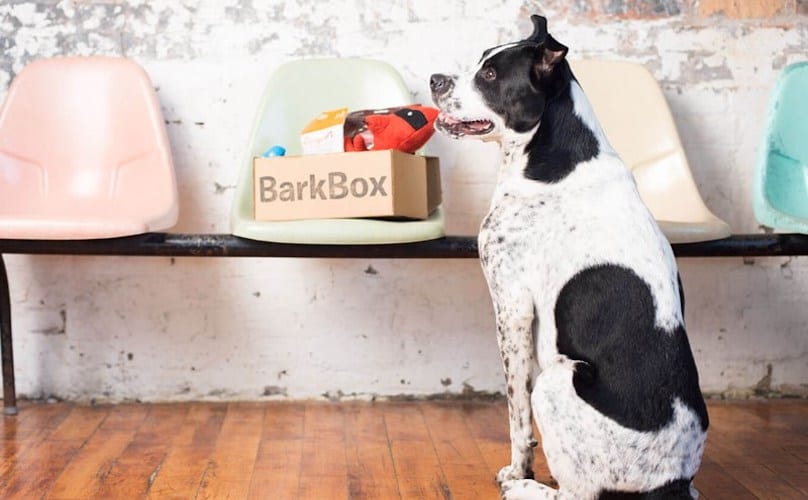

***Looking for a gift to blow your Basenji’s mind? Spoil them with BarkBox! Every month BarkBox delivers 2 original toys, designed in-house, 2 full bags of all-natural treats, and a chew. Sign up here and receive a free extra toy every month. <– This deal is worth up to $120 in value if you sign up for a 12-month subscription! 🙂
Featured image via Kala.the.basenji/Instagram
Want More Breed Guides Like This?
Shiba Inu Breed Information Guide
Korean Jindo Breed Information Guide


